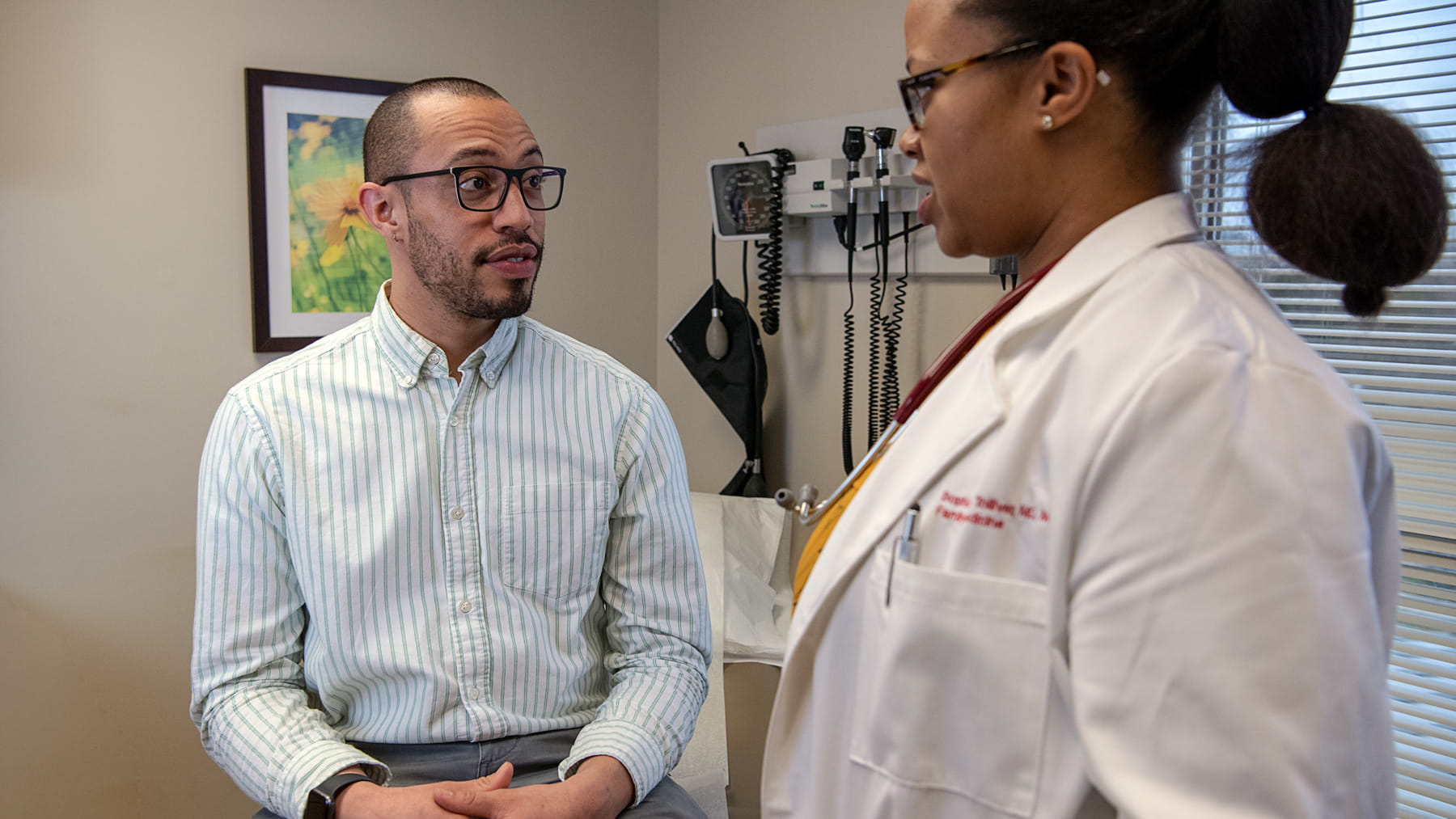Men: Make these five health appointments every year

With that in mind, here are five important medical appointments that men should make every year.
1. Annual physical with primary healthcare provider
Every man needs to make an annual appointment for a comprehensive review of their health. We’ll measure your vitals, including pulse, heart rate, blood pressure, temperature, height and weight. We get so much information from these vitals. For example, if your blood pressure is extremely high, we’ll assess you and may arrange for you to go to the hospital. If you’re overweight, we’ll talk about diet and exercise, or maybe roadblocks that prevent you from engaging in healthy habits. If you have a temperature of 103 F and had a laceration last week that looks infected, I might be concerned about something more serious such as sepsis.
If you come in and vitals are normal, we can focus on your present concerns and screen for other medical issues. If you have drug and alcohol issues, depression, or sleep and mood issues, we can help. We can send you to the right place for further assistance.
We also assess you for vaccines and make sure you’re up to date, as well as screening for prostate and colon health.
2. Dental exam with a dentist
Your mouth and teeth are one of the first things that people see when they meet you. They also can reveal signs of heart disease, cancer and diabetes. We recommend a dental exam and cleaning every six months; here they can also asses for cavities.
3. Vision screening with an eye doctor
A vision screening isn’t just recommended for people who wear glasses or contacts. Even if you have “perfect” vision, you should visit an eye doctor to screen for undetected vision issues that might arise. Signs of high blood pressure, diabetes or stroke, also can be uncovered during a vision exam.
4. Chat with a counselor (and take a vacation!)
Address your mind, body and soul by visiting a counselor or therapist once a year for a yearly tune-up. Everybody has things that go right or wrong in life. Being able to speak with someone who's unbiased to your situation can provide a new perspective and coping skills that can be very helpful. Whether you’re having difficulty with smoking, overeating, depression or maybe anxiety, a therapist can help.
At the very least, make sure you’re taking time out in a significant way either by a vacation, spa day or retreat. Vacations are a sort of self-care—really getting out to appreciate a new point of view can be cathartic.
5. Financial review with an advisor
Your finances can contribute to a lot of anxiety, depression and insecurity. High rates of stress can weigh on the body.
I recommend that everyone visit a financial coach or advisor once a year. You can become more confident in whatever you’re earning by learning how to set a budget and staying within it.
An advisor can help you set financial goals through a yearly assessment of your assets and liabilities. Financial peace of mind can potentially decrease heart attacks and strokes down the line.
Dr. Tolliver is a primary care physician and assistant professor of family medicine at The Ohio State University.




